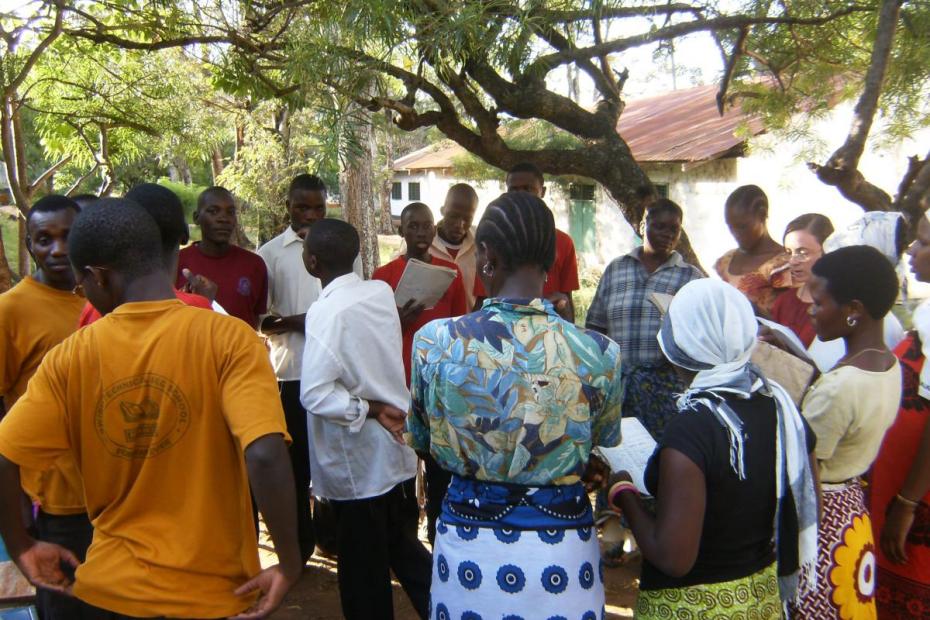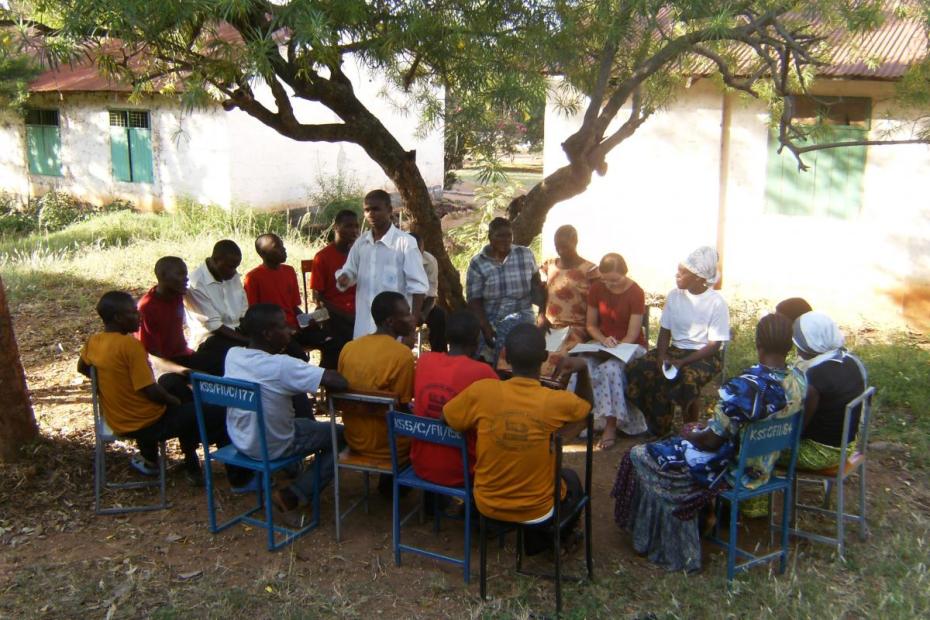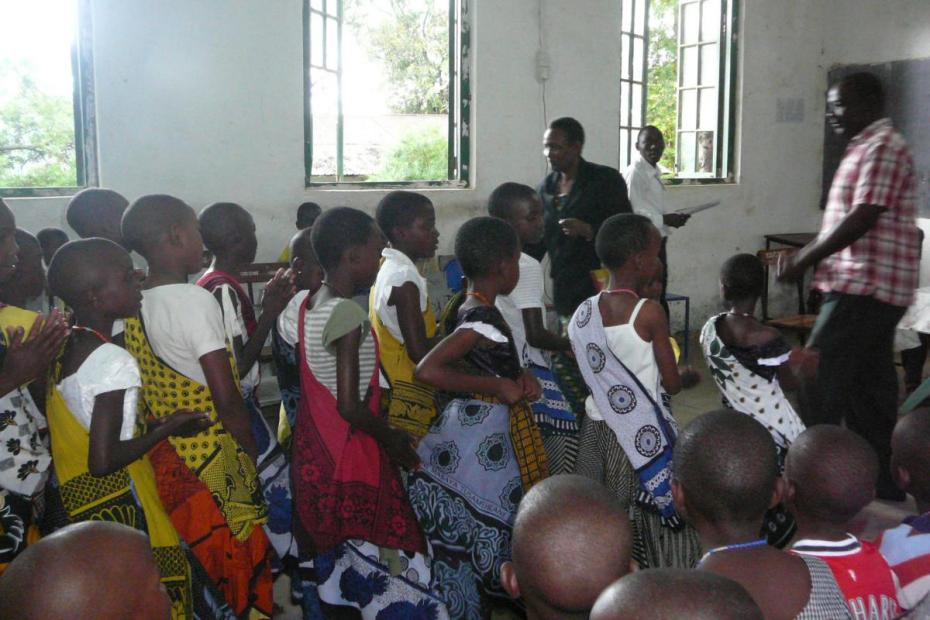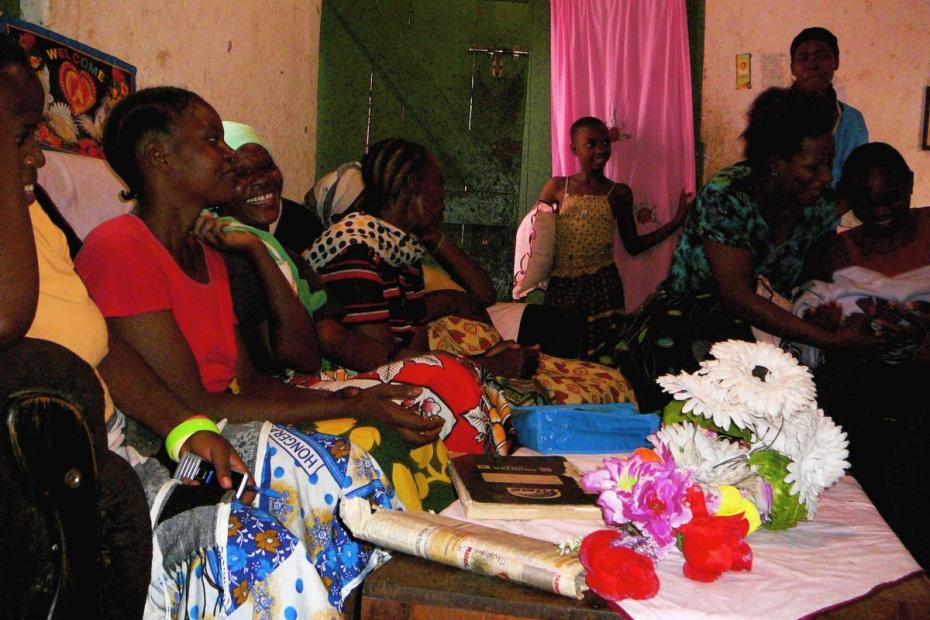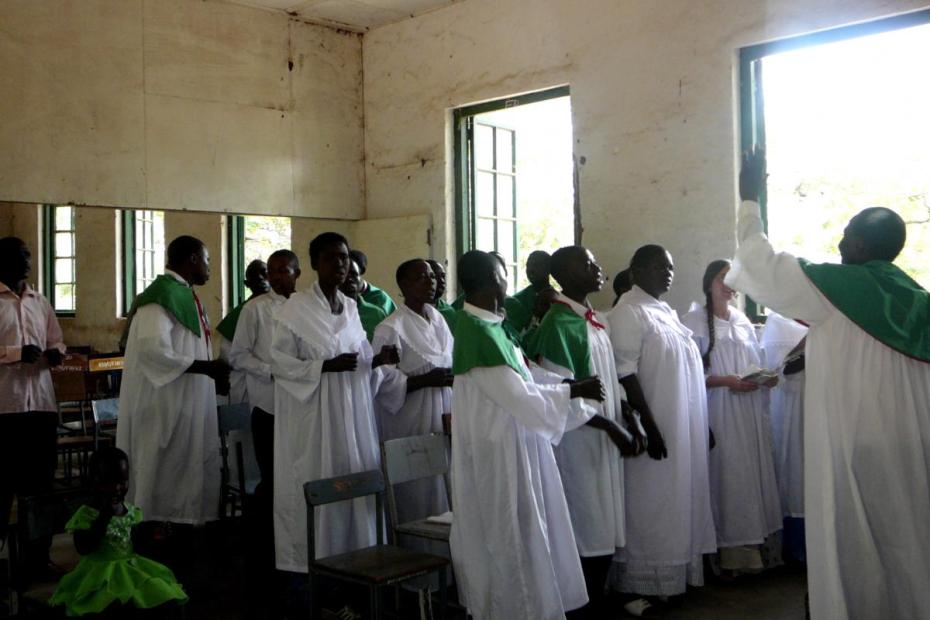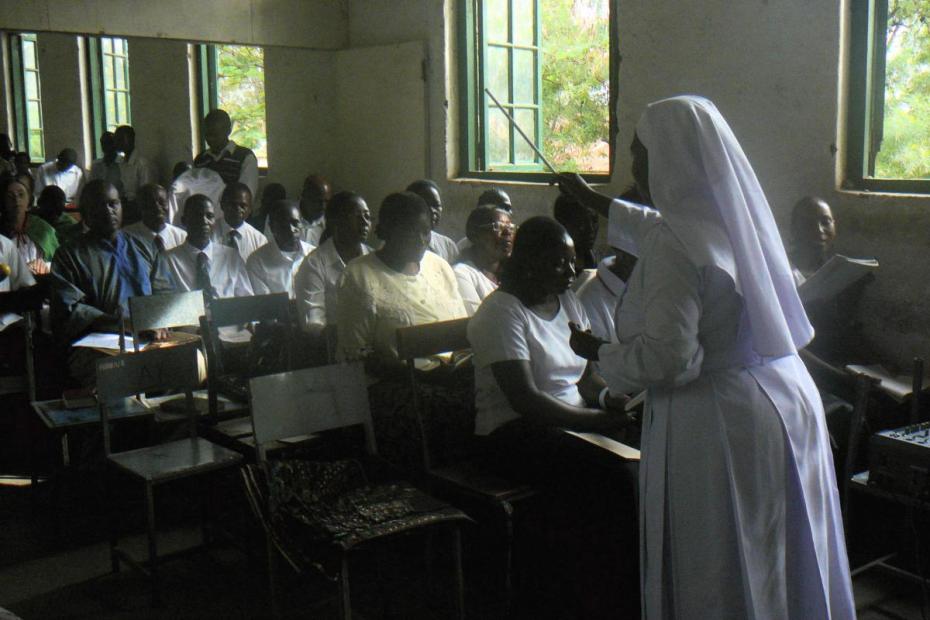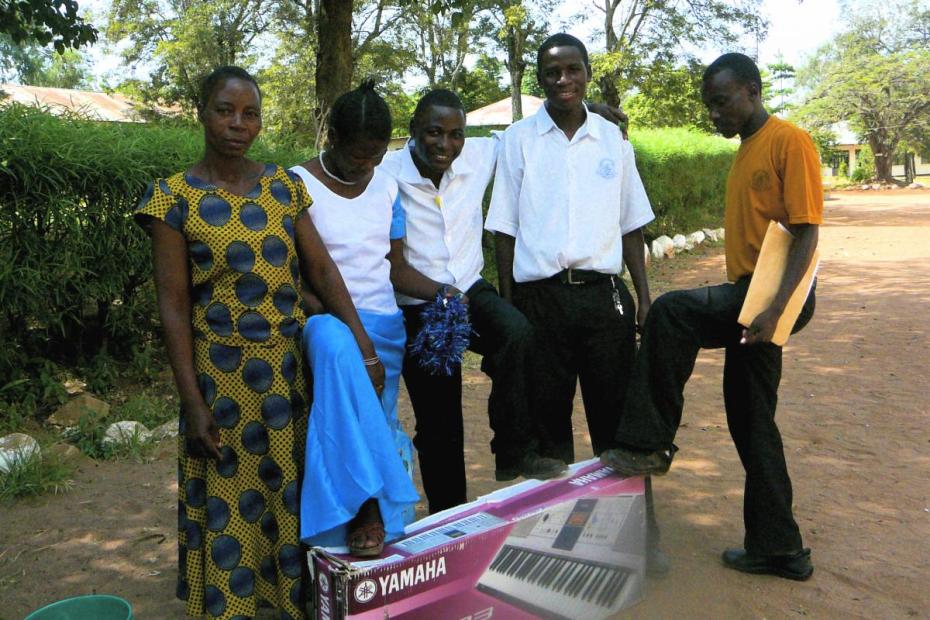St. Augustine once said that, “To sing is to pray twice.” Tanzanians have taken this short quip to heart and will not hesitate to remind one another of the value of singing. The choir dominates the Tanzanian Mass, and no song is complete without choreographed movement including stamping feet, swaying arms, clapping, and sometimes even cries of joy. If electricity is available, choirs prefer to have a keyboard to accompany them. Without it, drums, hand-made tambourines, and other small instruments are used to keep rhythm and bring further life to the song. But to be a part of a Tanzanian choir is more than singing at Mass for a couple of hours. For a regular Sunday Mass, choirs often practice two or three times a week; for special feast days, choirs practice for weeks in advance.
The Catholic Choir at Bwiru Outstation in Mwanza, Tanzania.
In urban communities, the choir is almost like another form of a Small Christian Community. Because of the time spent together, strong bonds are formed amongst members, and it is common for neighboring choirs to come together for fellowship and a bit of healthy, prayerful competition in the form of song. However, choirs can also become very much a status symbol within the local church and broader community. Joining a choir means that you are willing to commit your time and often your money. Fines are imposed if one is late to practice, and members may be expected to pay a membership fee in order to help support the various choir needs such as new song compositions, instruments, and matching outfits. Above these small needs, the ultimate dream of every choir is to gain widespread recognition by producing a CD. In contrast, the choirs in rural communities are far less demanding in terms of time commitment and money contributions; at times, organized choirs may even be non-existent.
While central to the Tanzanian Mass, the stringent demands of choir membership in urban communities have also instigated some opposition and division that can be felt during Mass. Some churchgoers may not be able to participate in the choir due to the financial pressure. Others who desire to sing yet cannot devote the time to choir practices are often unable to “pray twice” due to extremely complex chorale compositions. Finally, those in the general congregation may clap, but they are likely unable to participate in the highly choreographed dance moves of the choir. As a result, the Mass has become much more of a show for the choir and much less of a united worship for the congregation. Some worry that this performance is even distracting from the true focal point of Mass. In rural communities, however, these divisions are not as prevalent. The music is simpler and more familiar, and the dancing is less precise.
